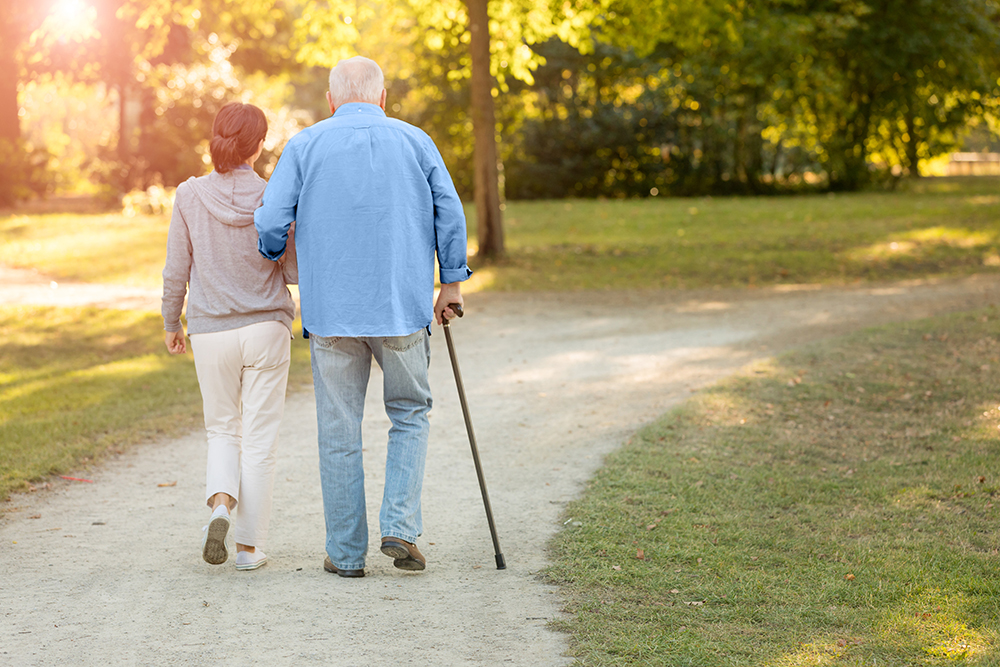Asset Publisher
Walking Tips to Support a Loved One
06/11/2019

An older adult walking together with their caregiver
There are many health benefits for older adults who walk on a regular basis, such as:
- Strengthened muscles
- Preventing weight gain
- Improved balance
- A lower likelihood of falling
- A lower risk of heart disease, stroke, diabetes and osteoporosis.
If a loved one has mobility issues, they can still benefit from walking, even if it's just a little bit. Here are some tips to help a loved one remain mobile:
1. Choose appropriate footwear
We should make sure our loved ones wear the right shoes. Sturdy, well-fitted, low-heeled shoes with wide rubber soles can help our loved ones be steady on their feet. Slippers or any shoe that can fall off easily should be avoided, since they can increase the risk of falling.
2. Use support if necessary
Our loved ones should be encouraged to use a cane or walker if needed. Using a cane or walker when taking a walk can help with balance and takes pressure off painful joints. It also can keep them from grabbing onto us as a balancing mechanism, which can pose a fall hazard for our loved one, and put us at risk of falling as well. However, we should make sure the device is the right height for our loved ones. A physician or physical therapist can help make sure our loved ones are using the proper tools and that they are adjusted appropriately.
3. Remove tripping hazards
Whether it's across a room, throughout the house or around the park, we should make sure the path is clear for our loved ones. Fall hazards such as loose rugs, cords and fallen branches should be removed.
4. Provide encouragement
If a loved one has fallen in the past, they may avoid walking because they fear falling again. We can discuss their fears and help them take small steps toward remaining mobile. The risk of falling will actually increase if they avoid walking altogether, and they can be setting themselves up for additional issues such as problems with circulation if they neglect to walk regularly. We can help our loved ones set and reach achievable goals, and our support and encouragement can go a long way toward helping them overcome their fears.
5. Consult a doctor
We should check with our loved ones physicians about range of motion exercises that our loved ones can safely complete. The physician may recommend an appointment with a physical therapist to develop an exercise regimen that is best suited to our loved ones individual needs.
A version of this article appeared in the Private Health News.
Related Assets
Suggested Reads
4 Tips to Help a Loved One Manage Stairs
If a loved one has mobility issues, a flight of stairs can sometimes seem like an insurmountable obstacle. At the same time, being able to move freely and safely throughout the home is imperative for a loved one's independence. In addition, the social and emot...
Identifying Risks and Preventing Falls for Older Adults
Winter weather can be beautiful, but along with the picturesque snow comes the less ideal increase to falls caused by ice and slush. While falls can be dangerous for people of all ages, they are a particular risk to older loved ones. According to the CDC Injur...
